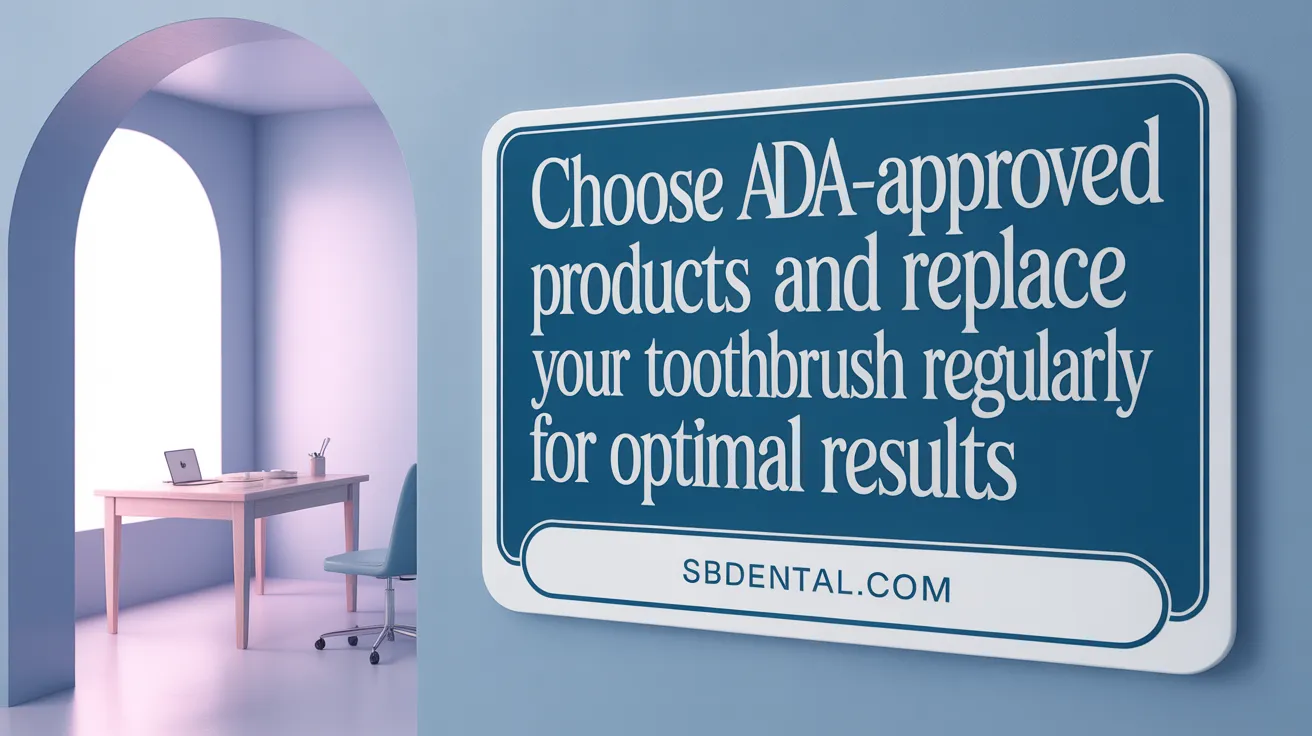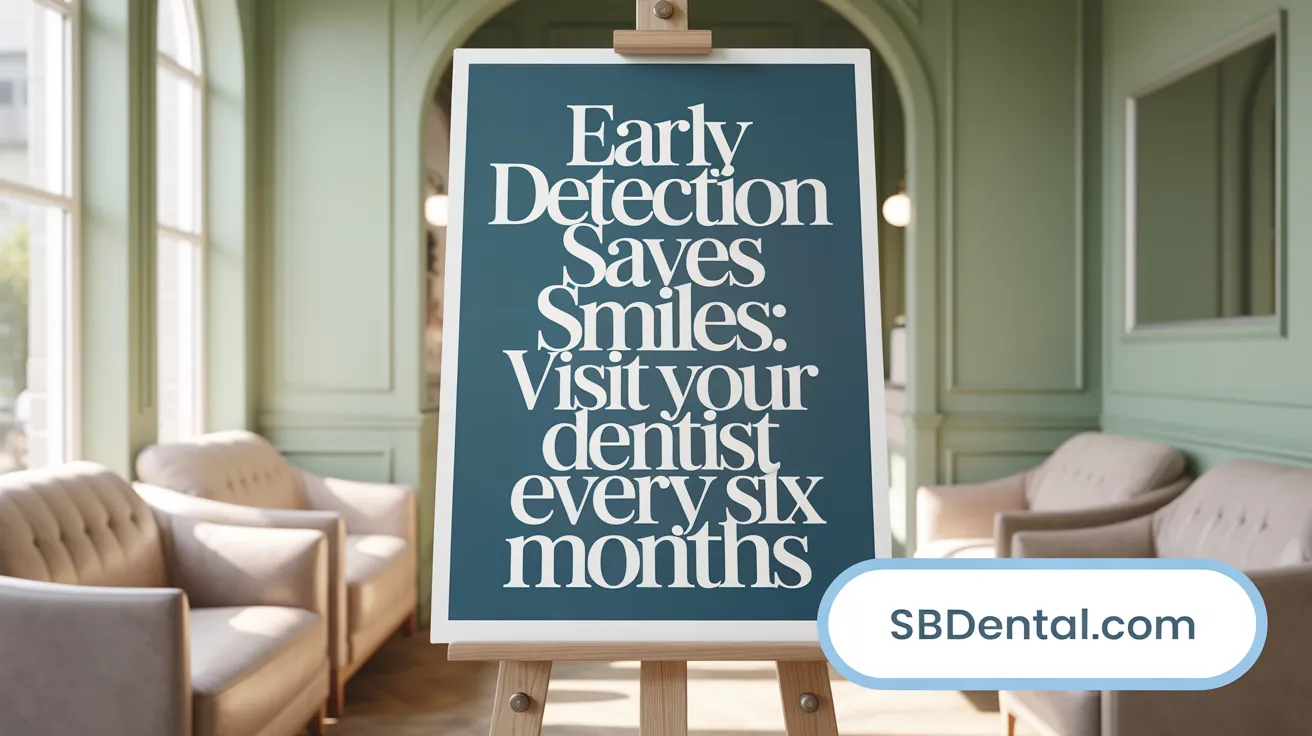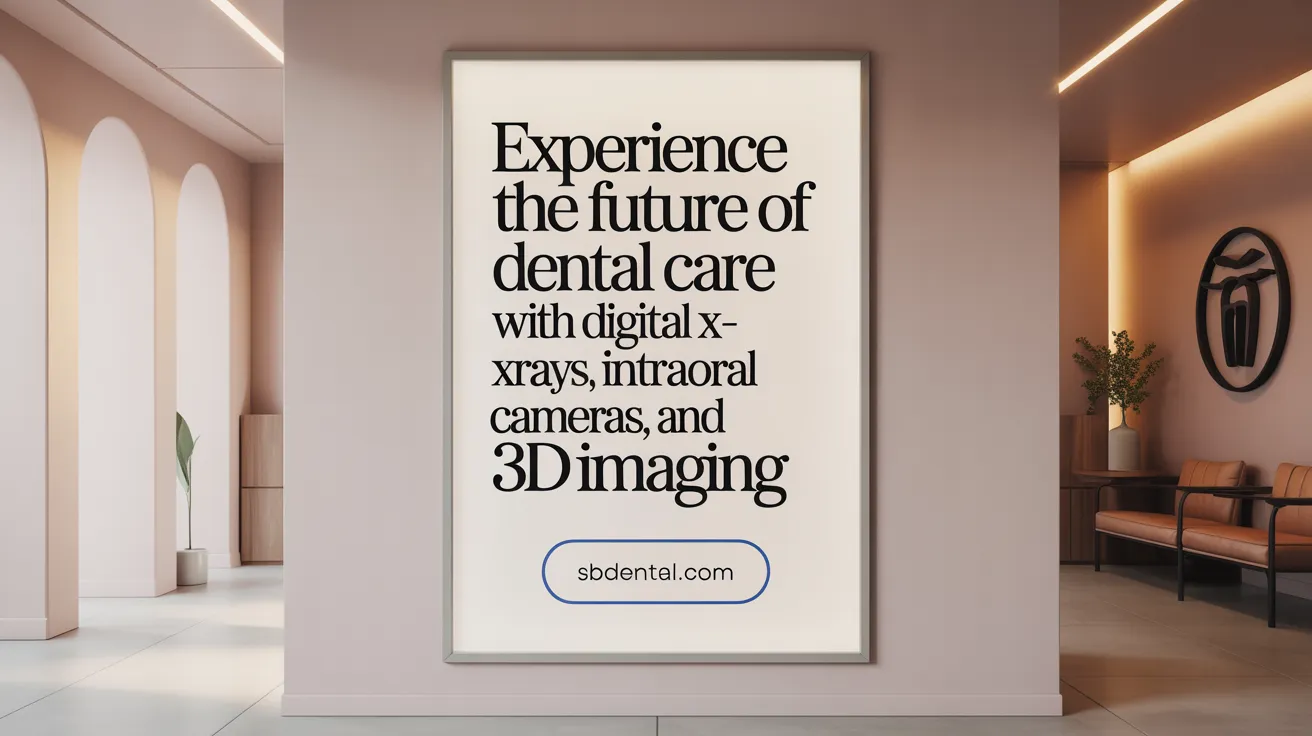Why Oral Health is Foundational to Wellbeing
Connection between oral health and overall health
Your mouth is a gateway to your body's overall wellness. Maintaining good oral hygiene isn’t just about having a bright smile; it helps prevent harmful bacteria from entering the bloodstream through your mouth. These bacteria can contribute to serious health issues beyond dental concerns.
Impact of oral hygiene on systemic conditions
Poor oral hygiene can lead to gum disease, which is linked to systemic conditions such as cardiovascular disease, stroke, diabetes, pneumonia, pregnancy complications, and even Alzheimer’s disease. Managing oral health effectively, including regular brushing and flossing, reduces the risk of these illnesses by keeping bacterial buildup and inflammation under control.
Importance of recognizing oral health signs
Early warning signs of poor oral health—such as bleeding gums, chronic bad breath, toothache, or loose teeth—signal the need for prompt dental care. Recognizing these symptoms early and maintaining routine dental visits can prevent progression to more serious conditions and support your overall health. This proactive approach is particularly crucial for those with existing health risks or chronic conditions.
Taking care of your oral health is an essential part of protecting your total well-being. Regular brushing, flossing, and professional dental checkups help preserve not just your teeth and gums but your whole body’s health.
Effective Oral Hygiene Practices for Lifelong Health

Brushing Techniques and Frequency
Brushing Teeth Twice Daily is essential to maintain good oral health. Use a Soft-Bristled Toothbrush Benefits positioned at a 45-degree angle to your gums. Employ gentle, circular motions to effectively remove plaque and bacteria along the gumline and tooth surfaces. Avoid harsh scrubbing which can damage gums and enamel.
Role of Fluoride Toothpaste and Soft-Bristled Toothbrushes
Using Fluoride Toothpaste strengthens tooth enamel and helps prevent decay by making teeth more resistant to acid attacks. Soft-Bristled Toothbrush Benefits are recommended because they clean effectively without harming gums or wearing down tooth enamel. When selecting oral care products, look for those approved by the ADA Seal of Acceptance Products to ensure safety and effectiveness.
Daily Flossing and Tongue Cleaning
Daily Flossing Importance removes plaque and food debris from between teeth, where brushing can’t reach. Use about 18 inches of floss, gently sliding it in a Flossing with C shape motion against each tooth to clean beneath the gumline. Don’t forget to use the Tongue Brushing Technique to reduce bacteria that cause bad breath and may contribute to oral health issues.
Use of Antibacterial Mouthwash
Incorporating an Alcohol-free mouthwash benefits antibacterial mouthwash into your daily routine can reduce harmful bacteria and plaque buildup. Mouthwash is especially helpful for freshening breath and supporting gum health, but it should complement—not replace—brushing and flossing.
Replacing Your Toothbrush Regularly
Replace your toothbrush or brush head every 3 to 4 months, or sooner if bristles become frayed. Worn bristles are less effective at removing plaque and bacteria, reducing the benefits of brushing.
Maintaining these Oral Hygiene Best Practices helps prevent cavities, gum disease, and other dental problems while supporting oral health and overall health. Residents of Rio Rancho can benefit from regular visits to local dental practices like Southwest Dental Rio Rancho, which offers comprehensive services, including Preventive dental services, restorative treatments, emergency services, and bilingual care, utilizing advanced technologies for optimal oral health outcomes.
The Role of Regular Professional Dental Care

Why Are Routine Dental Exams Important Every Six Months?
Regular dental exams and cleanings, ideally scheduled every six months, are fundamental to maintaining optimal oral health. These comprehensive check-ups allow dentists to assess the condition of teeth, gums, and overall mouth health, identifying any issues at an early stage before they become more serious or painful.
How Do Professional Cleanings Help Prevent Dental Problems?
Professional dental cleanings go beyond what daily brushing and flossing can achieve. They effectively remove plaque and tartar—the hardened deposits that can harbor bacteria and contribute to gum disease and tooth decay. Even with excellent home care, tartar can build up in hard-to-reach spots, making these cleanings essential. Learn more about Cleaning for Gum Disease and Daily Flossing Importance.
What Diseases Can Early Detection Through Dental Visits Prevent?
Regular visits enable early detection of oral diseases, including gum disease and oral cancer, conditions that might not show obvious symptoms initially. Early diagnosis improves treatment outcomes and helps maintain overall health, given the links between oral health and overall health, especially oral infections and systemic conditions such as cardiovascular disease.
When Are More Frequent Dental Visits Recommended?
Individuals with higher risks—such as those with a history of gum disease, diabetes, or a tendency to develop cavities—may be advised to have more frequent visits, sometimes every three to four months. This tailored approach ensures closer monitoring and timely intervention to prevent complications, supported by Consulting a dentist promptly and More frequent cleanings for dental issues.
Why Is Preventive Care More Beneficial Than Treating Advanced Issues?
Investing in Preventative Dental Care saves time, discomfort, and significant costs in the long run. Preventing diseases with regular cleanings and exams means avoiding invasive and expensive treatments later, promoting sustained oral and overall health through Benefits of Good Oral Hygiene and Oral Health and Overall Health.
What Is the Patient-Centered Approach at Southern Boulevard Dental?
Southern Boulevard Dental prioritizes personalized care, addressing each patient’s unique needs and preferences. The team educates patients about Oral Hygiene Best Practices, fostering informed decisions and reducing anxiety by creating a welcoming environment. Open communication is encouraged, building trust and promoting healthier smiles through compassionate, customized treatment as seen in Comprehensive dental care in Rio Rancho NM.
How Advanced Technology Enhances Oral Health Care

How does Southern Boulevard Dental integrate advanced technology into patient care?
Southern Boulevard Dental enhances patient care by employing a range of cutting-edge dental technologies, improving diagnostic accuracy, treatment precision, and patient comfort.
One key tool is Digital X-Rays technology, paired with intraoral cameras that provide clear, detailed images of your teeth and gums. These tools help detect problems earlier and allow patients to understand their oral health better by seeing inside their mouths.
They also use a 3D Cone Beam Scanner, which creates a three-dimensional view of the oral structures. This is especially helpful for planning complex treatments like oral surgery, implants, or orthodontics, ensuring precise and safe procedures.
For impressions, the practice offers digital impression systems such as iTero. This technology replaces traditional molds with a fast, comfortable digital scan that produces accurate models without the discomfort of gagging or messy materials.
Laser dentistry is another advanced feature, enabling minimally invasive procedures. Laser tools target affected areas precisely, reducing pain, bleeding, and recovery time compared to conventional methods.
Early detection is critical, and Southern Boulevard Dental uses the DIAGNOdent system, a laser device that identifies tooth decay before it becomes visible or painful. Additionally, the T-Scan Novus technology analyzes your bite digitally, allowing the dentist to diagnose bite irregularities and provide personalized treatment plans to promote long-term oral health.
By integrating these technologies, Southern Boulevard Dental delivers comprehensive, efficient, and patient-friendly care, supporting both preventive dental services and restorative dentistry in Rio Rancho, NM.
Lifestyle Choices and Their Impact on Oral and Systemic Health
Why Avoiding Tobacco Is Crucial for Oral Health
Avoiding tobacco for oral health is a major risk factor for gum disease prevention and oral cancer. Smoking and chewing tobacco irritate the gums, reduce blood flow, and hinder healing, increasing the chances of gum infections and oral lesions. Avoiding tobacco for oral health not only improves gum health but also lowers the risk of developing oral cancers.
How Diet Affects Oral Bacteria and Cavity Formation
A diet high in Limiting added sugars to prevent tooth decay fuels harmful bacteria in the mouth, leading to plaque buildup and acid production that erode tooth enamel. Limiting sugary foods and drinks reduces this bacterial growth and helps prevent cavities.
Managing Sugar Intake During Holidays to Protect Teeth
Maintaining oral health during the holiday season often involves sugary treats and sticky foods that cling to teeth and promote decay. Brushing teeth twice a day, waiting at least 30 minutes after eating before brushing, and rinsing with water or mouthwash can minimize acid erosion and plaque formation during festive seasons.
The Relationship Between Chronic Conditions and Oral Health
Diseases like Diabetes and gum disease link and heart disease have a bidirectional relationship with oral health. Gum disease and systemic conditions can worsen blood sugar control in diabetes and increase cardiovascular risks. Managing these conditions alongside Oral health and overall health is essential for overall health.
The Impact of Medications Causing Dry Mouth on Oral Infection Risk
Certain medications, including decongestants, antihistamines, and antidepressants, reduce saliva flow, leading to Medications causing dry mouth. Saliva protects oral tissues by washing away food and neutralizing acids. A dry mouth environment increases the risk of tooth decay and infections, so Informing your dentist about medications is important for tailored preventive care.
Recognizing Early Signs of Poor Oral Health and When to Seek Help
What Are the Early Symptoms of Poor Oral Health?
Early warning signs include bleeding gums and tooth decay during brushing or flossing, persistent bad breath, toothache, loose teeth, and visible gum recession. These symptoms can indicate underlying Gum Disease Prevention or tooth decay that requires attention.
How Does Gum Disease Affect Overall Health?
Oral health and overall health isn't just a mouth problem—it can trigger systemic inflammation impacting heart health, diabetes control, and even contribute to pregnancy complications. Addressing Gum Disease and Systemic Conditions early helps prevent these broader health issues.
When Should You See a Dentist?
If you notice warning signs like swollen, Bleeding Gums or experience tooth pain or loose teeth, seek Consulting a Dentist Promptly. Delaying treatment can allow infections to worsen and lead to more invasive procedures.
What Role Does Saliva Play, and How Do Medications Affect It?
Saliva Flow and Oral Infection Risk protects your mouth by neutralizing acids and washing away bacteria. Certain Medicines Reducing Saliva Flow increase the risk of oral infections and dryness. Inform your dentist about any medications you take for tailored care.
Monitoring Oral Health in Special Populations
People with chronic conditions such as Diabetes and Gum Disease Link, Oral Problems in HIV/AIDS, or those taking medications causing dry mouth need Regular Dental Checkups. Routine monitoring supports Early Detection of Oral Problems and better management of oral health challenges specific to these groups.
Maintaining Oral Health in Rio Rancho: Community Resources and Patient Support
Benefits of Fluoridated Water for Cavity Prevention
Residents of Rio Rancho benefit from access to fluoridated water benefits in Rio Rancho, which helps reduce tooth decay by about 25%. This natural and cost-effective measure strengthens enamel and supports cavity prevention across all age groups.
Accessibility of Dental Care through Insurance and Financing Options
Local dental practices like Rio Rancho Modern Dentistry and Orthodontics and Southwest Dental Rio Rancho accept various insurance plans and offer flexible financing options such as the Smile Generation Dental Plan. These services make dental care more affordable and accessible for a wide range of patients.
Community Dental Initiatives Supporting Vulnerable Populations
Community health programs in Rio Rancho focus on Community dental health initiatives in Rio Rancho, emphasizing preventive care and early intervention, particularly for populations at higher risk for oral diseases, including children and those with chronic conditions like diabetes. School sealant programs and water fluoridation initiatives are part of these efforts.
Importance of Bilingual and Culturally Sensitive Care
Dental providers in Rio Rancho emphasize culturally sensitive and bilingual patient services to ensure comfortable communication and effective education. This approach fosters trust and better oral health outcomes in a diverse community.
Patient Education and Support for Improved Oral Health Outcomes
Dental offices prioritize patient education on proper Oral Hygiene Best Practices, highlighting practices such as Brushing Teeth Twice Daily with Using Fluoride Toothpaste and Daily Flossing Importance. They also provide guidance on healthy diet for oral care, Avoiding Tobacco for Oral Health, and Regular Dental Visits, which are crucial for long-term oral and overall health.
Sustaining Oral Hygiene for a Healthier Life
Essential Oral Hygiene Practices
Maintaining oral health begins with simple daily habits. Brush your teeth at least twice a day using fluoride toothpaste and a soft-bristled toothbrush angled at 45 degrees toward the gums. Floss daily to remove plaque and debris between teeth where brushing can’t reach. Don't forget to clean your tongue and consider an alcohol-free antibacterial mouthwash to reduce harmful bacteria and freshen breath.
Oral Health and Overall Wellbeing
Good oral health is more than a bright smile—it’s linked to your body’s overall health. Problems like gum disease have connections to heart disease, diabetes, and even pregnancy complications. By keeping your mouth healthy, you support your entire body’s wellbeing.
Commit to Routine Dental Care
Regular dental visits, ideally every six months or more frequently for those at higher risk, are vital. Professional cleanings and exams help catch issues early and keep your smile strong. Combining diligent daily care with professional support ensures a healthier life both inside and out.
